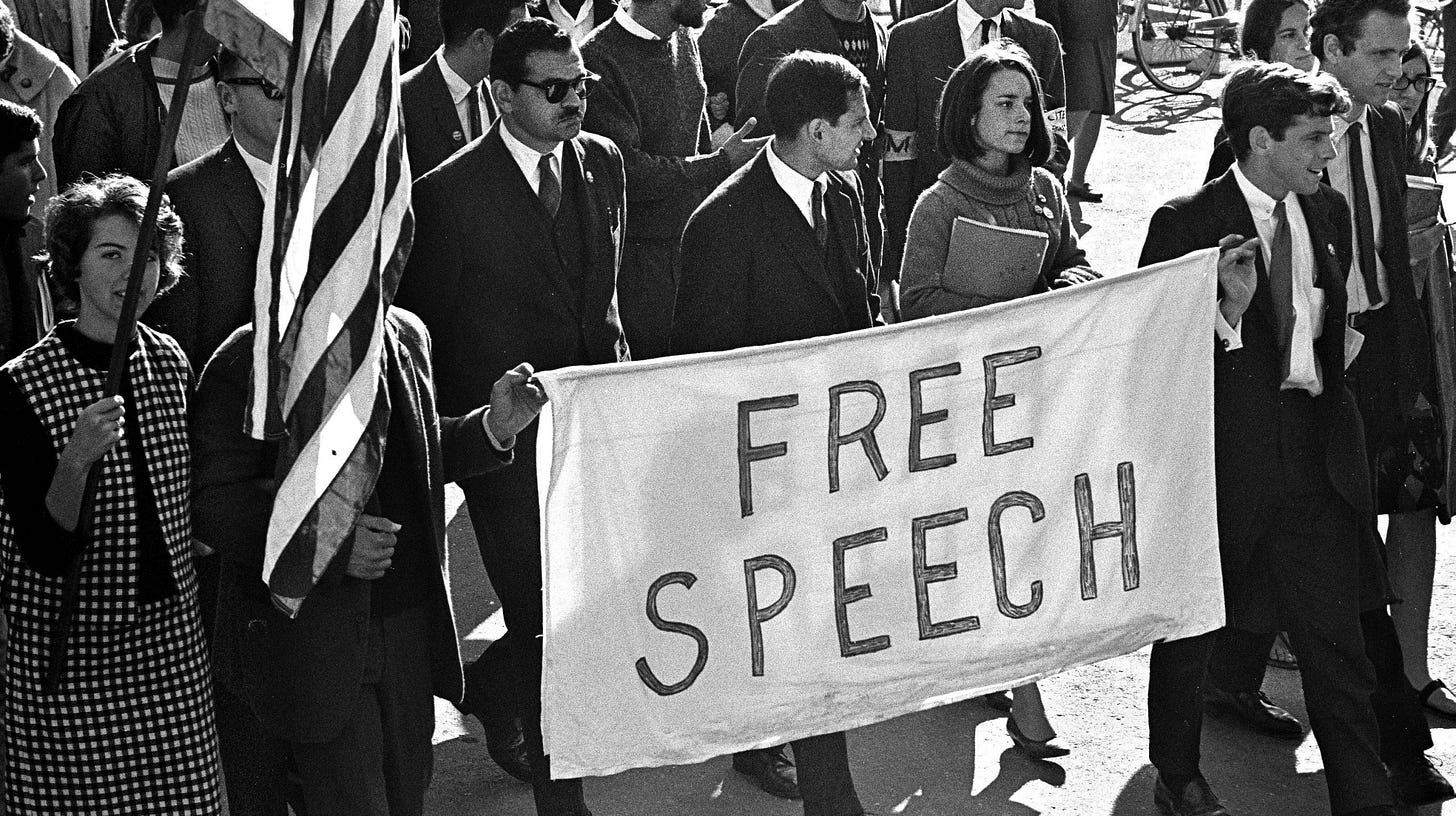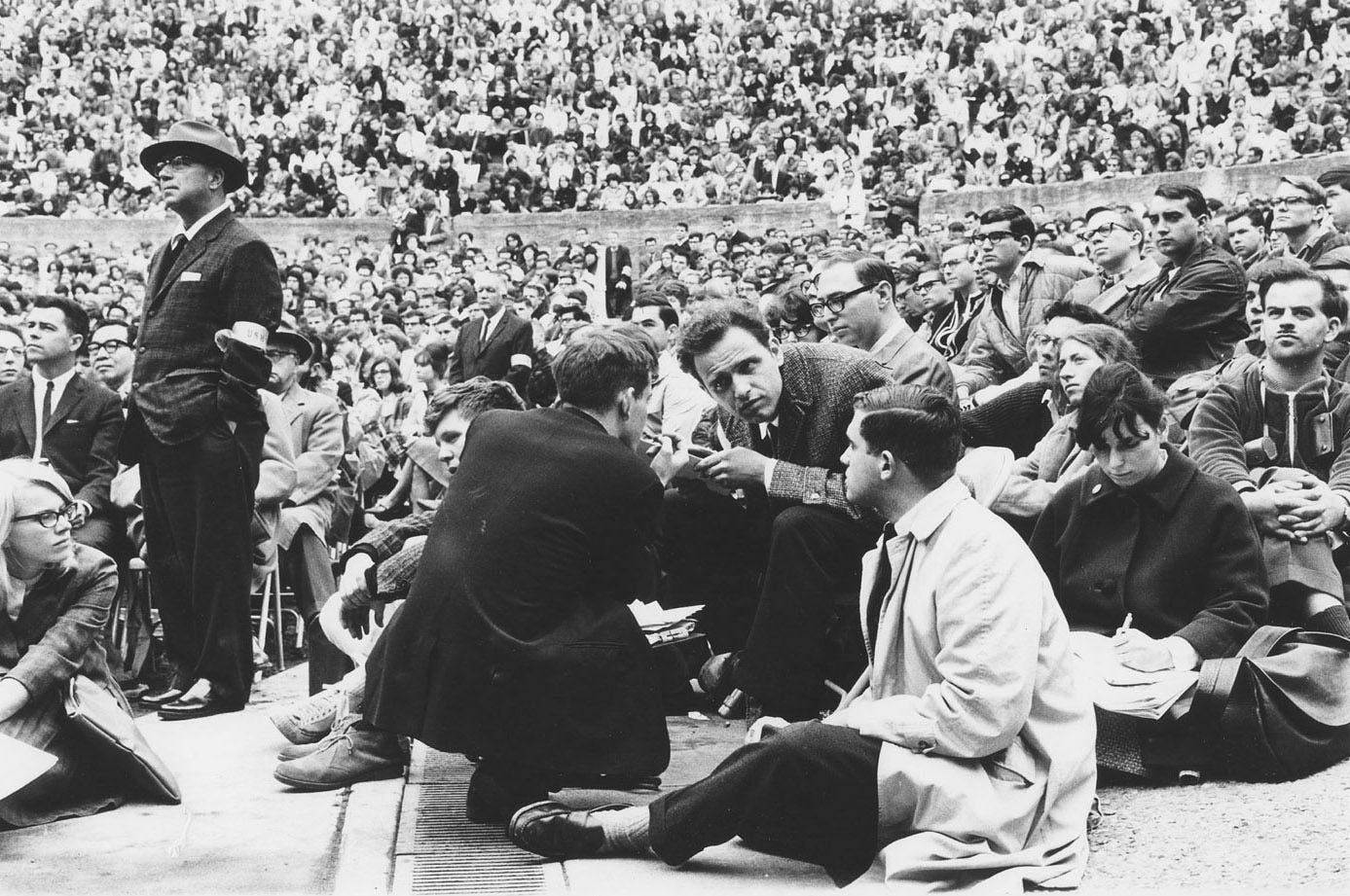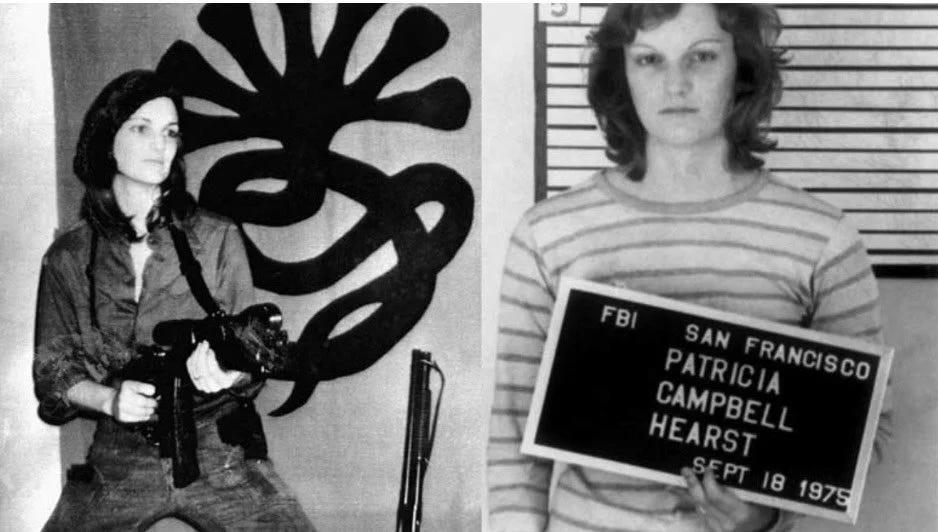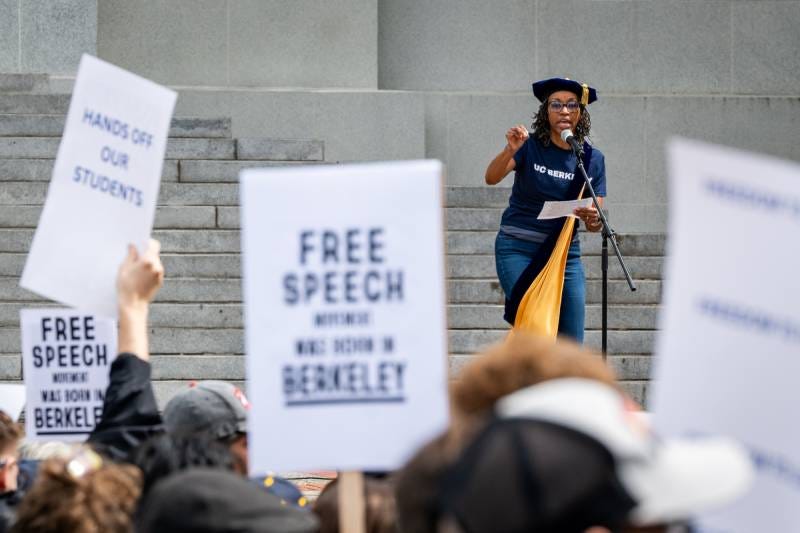In Defense Of Free Speech, Faith, and Non-Violence
When violence masquerades as justice, defending speech becomes a moral imperative.
In the wake of activist Charlie Kirk’s assassination at a Utah college last week, online discourse quickly devolved into an ugly torrent of speculation and finger pointing. Yet in the end, the killer turned out not to be the caricature pundits rushed to imagine, but rather a middle-class kid from a good home.
The revelation exposed a tangled web of ideological contradictions. As expected, the left blamed guns and religion. The right pointed fingers at colleges and transpeople. But both narratives miss the mark. The problem is not left or right. The problem is extremism. It doesn’t matter how deeply held a belief is. When a belief turns violent, it is no longer a part of a democratic society. It is a threat to it.
Free Speech
When it comes to free speech, the true danger is not in disagreement, but the refusal to tolerate it. Free speech only works when it is undergirded by a shared commitment to resolve conflict with words, not weapons. The moment a person tries to impose their worldview by force, they are no longer defending free speech but rather destroying the very foundation that allows it to exist.
Not everyone agrees. A major problem with today’s political climate is the growing belief that it is acceptable to use force to silence views deemed “hateful,” a wildly subjective term that is increasingly defined by personal offense rather than objective harm.
“If you cannot tolerate disagreement, the problem is not speech, the problem is your tolerance for freedom.”
But this logic is deeply flawed. Free speech is the cornerstone of every other right. It is the right to worship. It is the right to protest. It is the right to satirize. It is the right to criticize. It is how we persuade, challenge, and evolve. When speech is stifled, the marketplace of ideas suffers.
To be sure, speech is sometimes uncomfortable. It can irritate or provoke. But if you cannot tolerate disagreement, the problem is not speech, the problem is your tolerance for freedom. You are welcome to rebuke or ignore. For everything else, there is a legislative and judicial process.
Extremism Erodes
It’s no coincidence free speech is the first thing that actual fascists target. It exposes, distills, debunks. Which is why the label “anti-fascist” rings hollow when worn by someone who kills over a political disagreement. There is nothing “anti-fascist” about using violence to silence speech. It is fascism by another name.
Sadly, murdering someone over a different viewpoint is not new. The first person who comes to mind is Sara Jane Olson. Born in North Dakota, Olson began as an upper-middle-class Republican and suburban mother. But in the radical ferment of the 1970s, she was drawn into extremist ideology.
She eventually joined the Symbionese Liberation Army, a far-left militant group that carried out bombings, assassinations, and kidnappings in the name of revolution, all under the banner: “Death to the fascist insect that preys upon the life of the people.”
“The moment a person tries to impose their worldview by force, they are no longer defending free speech but rather destroying the very foundation that allows it to exist.”
Like Olson, Robinson was radicalized by a belief that violence is justified in the name of moral purity. But there are key differences. Olson emerged from an era of upheaval and distrust in institutions. Robinson emerged from a digital culture where outrage is currency, nuance is weakness, and speech itself is treated as violence, making actual violence easier to rationalize.
Today, critics blame guns. Fair enough. With over 300 mass shootings in the U.S. this year (Gun Violence Archive), it's clear America has a serious problem with firearms. I’m more than willing to have that conversation.
But let me pose a question: Had Tyler Robinson driven his car onto a crowded UVU campus, would the same people want to have a conversation about Toyotas? I doubt it. The focus would be on the ideology that compelled him to weaponize an ordinary object to commit mass violence.
That is why this conversation matters. It’s bigger than guns. It’s bigger than left vs. right. This is about extremism vs. moderation. And there’s no question in my mind that Tyler was more than just angry, he was radicalized (law enforcement stated bullet casings at the scene had political engravings).
Faith vs. Force
Dishonest actors with agendas have tried to frame the shooting in Utah as a product of “Christian nationalism.” But this claim is a distortion. In reality, the attack in Utah didn’t promote Christianity or nationalism. On the contrary, it targeted them. After all, the victim was a self-identified Christian nationalist (one who I disagreed with on a number of issues).
Nonetheless, the same logic applies to religion. True faith doesn’t need force or a weapon. The moment someone resorts to violence in its name, they are not defending their religion, they are betraying it. History makes this clear, from the Spanish conquest of Mexico to modern-day jihadists in the Middle East.
“Faith acts as a glue that holds families and communities together in an increasingly fragmented world. I have no doubt that many of society’s most pressing problems today…stem in large part from the decline of faith.”
Christ preached peace. When a religious belief becomes a tool for domination, it stops being faith and becomes fanaticism. Violence justified in the name of fighting “fascism,” “hate,” or even religion itself is not righteous. It is extremism in disguise.
On the other hand, when force and coercion are eliminated, faith has the power to become a cornerstone for strengthening family bonds and building supportive communities. A study published by Harvard T.H. Chan School of Public Health highlights that individuals involved in religious communities report higher levels of social support and stronger family relationships.
These connections foster a sense of belonging and collective responsibility, which are crucial for mental health and societal stability. Faith acts as a glue that holds families and communities together in an increasingly fragmented world. I have no doubt that many of society’s most pressing problems today, from rising loneliness to social fragmentation, stem in large part from the decline of faith and weakening family bonds. This was never clearer than during the pandemic.
Truth Matters
Unfortunately, we live in an age where we are being asked to ignore what our eyes and ears tell us. Despite a person claiming to be “anti-fascist” and killing another person over a difference of opinion, we are supposed to believe they are fighting fascism. Nonsense! This twisted logic reveals a deeper truth: when everyone becomes extreme, moderation itself becomes radical.
We also live in a society that demands easy scapegoats. Blame Black people, blame immigrants, blame transpeople, blame Christians. But none of it tackles the real crisis: the rising acceptance of violence to silence dissent. According to FIRE (The Foundation for Individual Rights and Expression), the number of students who see violence as acceptable to stop a speaker is 1 in 3.
This is unacceptable in a free society. It’s time for Americans to reject extremism on all sides and find common ground. For the sake of our institutions, our communities, and our country. Without moderation, extremism wins, and democracy loses.
Progress begins with speech.







